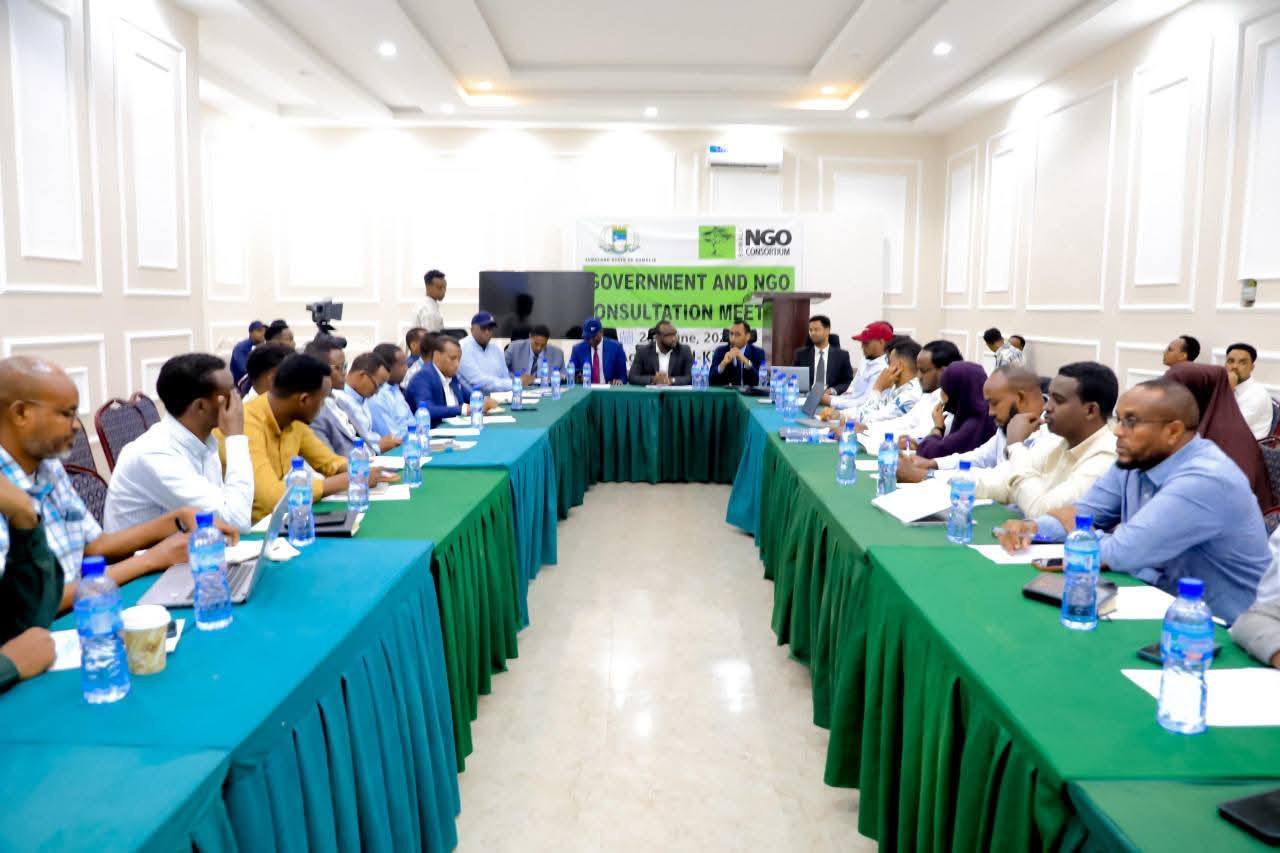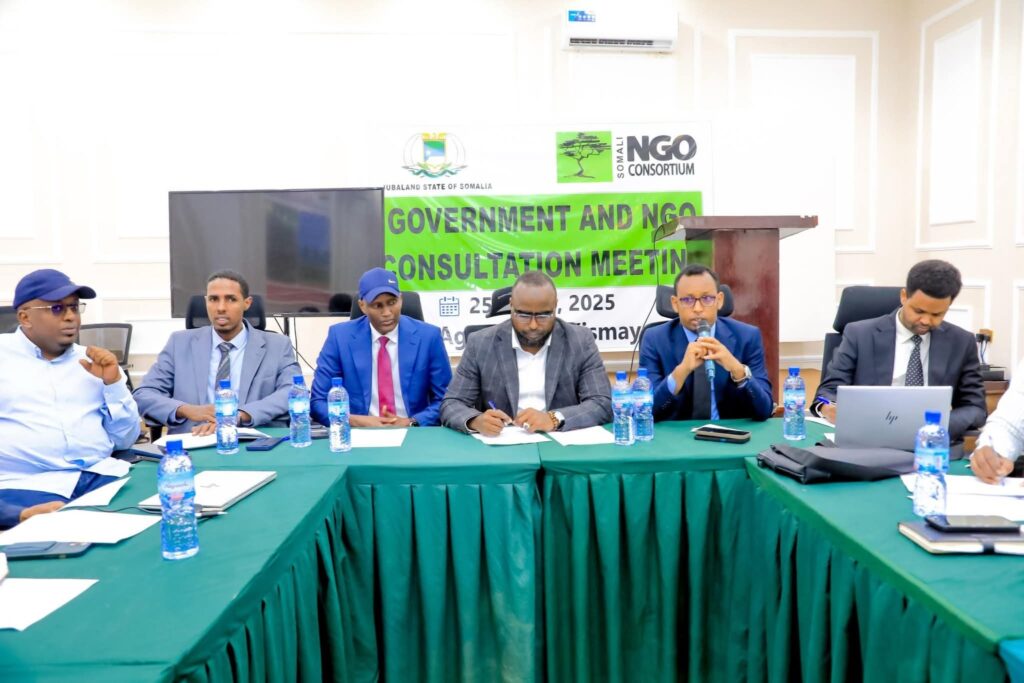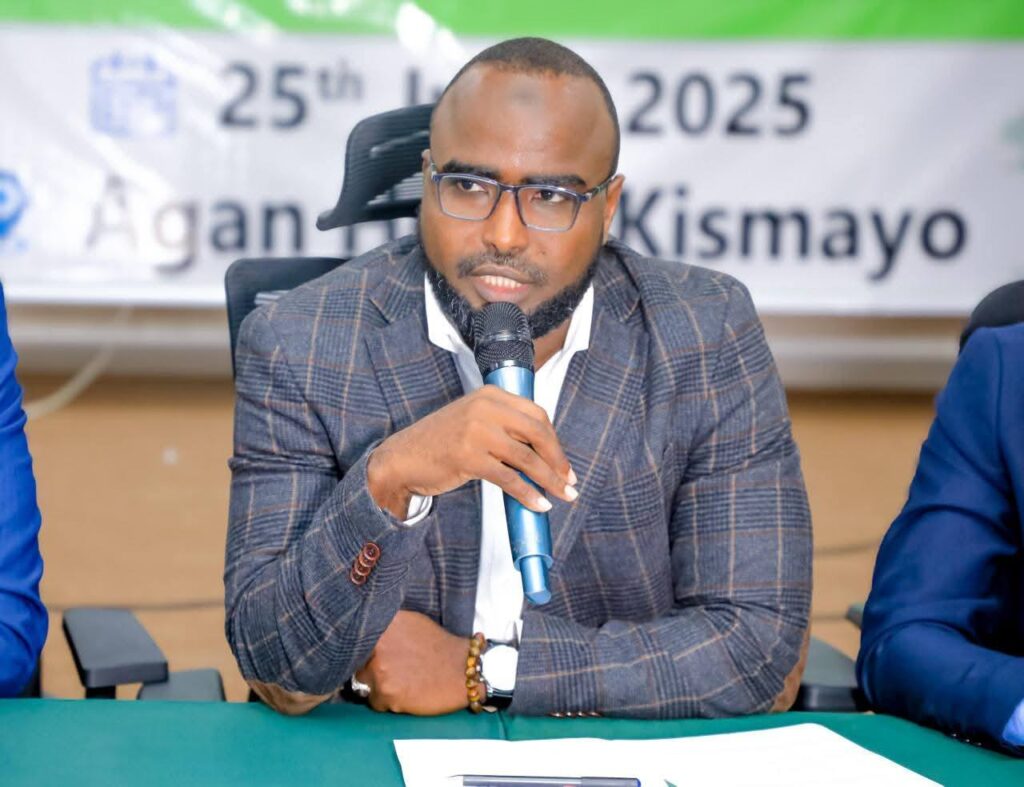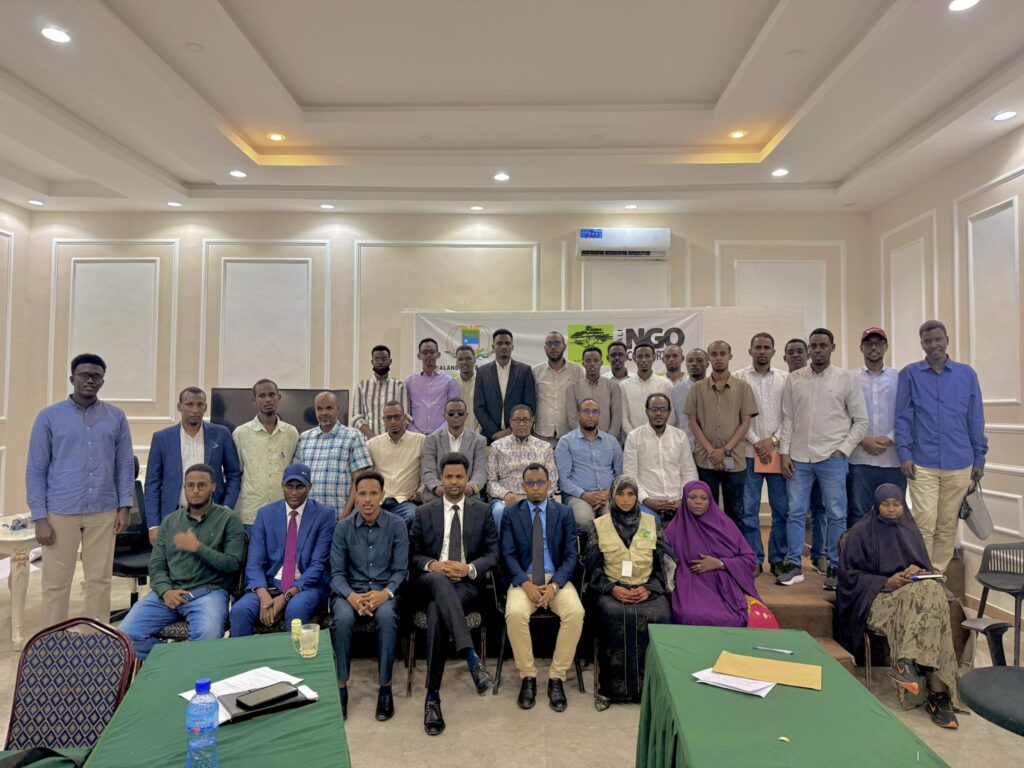
EXECUTIVE SUMMARY
This summary presents Ardaaga’s reflections and insights following our participation in the Strategic Coordination Meeting convened by the Ministry of Planning, Investment, and International Cooperation (MoPIC) of Jubaland State on 25th June 2025 in Kismayo. The meeting brought together international and local NGOs, government representatives, and development actors to foster collaboration, improve coordination, and contribute to the formulation of the Jubaland State Development Plan (SDP) 2025–2029.
PURPOSE
This overview serves as public documentation of Ardaaga’s participation in the event, offering a civil society perspective on the discussions held, the challenges raised, and the opportunities identified. It also outlines Ardaaga’s proposed contributions to future coordination mechanisms and policy development processes in Jubaland. Intended audiences include government institutions, NGOs, donors, researchers, and anyone interested in participatory development planning and governance reform.

SUMMARY OF THE MEETING
The coordination gathering marked a significant step toward structured and evidence-based development planning in Jubaland. Key objectives included:
- Reviewing the status of ongoing projects and identifying coordination gaps and overlaps
- Engaging stakeholders in the early design of the upcoming Jubaland State Development Plan (SDP)
- Introducing reforms such as the digital NGO registration system, M&E policy under development, and a treasury-based single account model for NGO registration fees.
- Encouraging innovation, research, and inclusive decision-making through stronger NGO–government collaboration
Participants raised critical points regarding the lack of research-informed decision-making, the need for more inclusive civic participation, and the importance of transparency in coordination systems. The government emphasized strategic planning’s role in reducing duplication, improving accountability, and promoting impactful investment.
ARDAAGA’S KEY TAKEAWAYS AND RESPONSE
As a civic-focused policy and engagement organization, Ardaaga views this meeting as a turning point for civil society inclusion in Jubaland’s governance architecture. Our key takeaways include:
- The urgent need to institutionalize evidence-based planning and research-informed development
- The importance of building trust between civil society, government, and donors through transparent, collaborative mechanisms
- A strong call for civil society organizations to take an active role in shaping the State Development Plan by providing localized knowledge and citizen-driven priorities
In response, Ardaaga commits to:
- Contributing research, data, and policy insights to the SDP formulation process.
- Supporting civic engagement around development planning through public dialogue and grassroots consultation.
- Participating in the design and review of coordination systems that promote transparency, inclusivity, and impact.
This summary continues Ardaaga’s mission to elevate civic voices, influence governance through informed action, and advocate for a development approach rooted in participation, equity, and cultural grounding.
BACKGROUND
On 25th June 2025, the Ministry of Planning, Investment, and International Cooperation (MoPIC) of Jubaland together with the Somali NGO Consortium convened a Strategic Coordination Meeting in Kismayo, gathering local and international NGOs, civil society organizations, UN agencies, private sector actors, and government representatives. The gathering marked a significant milestone in enhancing structured coordination and aligning stakeholders toward a shared vision for development in Jubaland.
The meeting occurred at a pivotal moment: as Jubaland prepares its State Development Plan (SDP) 2025–2029, there is renewed focus on improving coordination, accountability, and community-driven priorities. MoPIC emphasized the need to bridge persistent gaps between humanitarian, development, and government actors by anchoring collective efforts in a clear, evidence-based strategic framework.

OBJECTIVES OF THE STRATEGIC COORDINATION MEETING
- Review current program implementation, identifying duplication and unmet needs across sectors and regions
- Facilitate early input into the development of the upcoming Jubaland SDP 2025–2029, ensuring inclusive participation
- Strengthen coordination mechanisms through structured processes: digital registration, treasury oversight, and improved reporting protocols
- Categorize partners and stakeholders under thematic groups aligned with SDP pillars
- Encourage innovation, data use, and research, promoting accountability and locally informed programming
Discussions highlighted challenges such as lack of stakeholder coordination, limited use of research and data in planning, inconsistent community engagement, and the need for transparent monitoring and evaluation systems.
ARDAAGA’S ROLE AS A PARTICIPANT
Ardaaga joined as an active civil society organization dedicated to civic engagement, research, and governance reform in Jubaland. We engaged to:
- Offer perspectives from our work in civic education, public dialogue, and policy advocacy
- Explore how civil society can contribute to SDP formulation and implementation
- Identify opportunities to support coordination reforms with research, policy input, and citizen engagement mechanisms
Our presence aligns with Ardaaga’s mission to ensure democratic participation, informed decision-making, and cultural context are central to governance and development planning in Somalia. The meeting affirmed our role as both contributor and partner in shaping an inclusive, transparent, and effective development agenda for Jubaland.
MEETING HIGHLIGHTS & DISCUSSION THEMES
- Coordination & Overlap
A recurring theme was poor coordination among government bodies, international NGOs, local organizations, and UN agencies. Overlapping project implementation, misaligned priorities, and fragmented communication weakened overall effectiveness. MoPIC proposed:
- A central coordination mechanism at ministry and state levels
- Structured, evidence-based strategic planning
- Clear partner mapping by sector and geography
- A unified information-sharing platform to avoid duplication
- Research & Evidence-Based Planning
Many projects lack baseline assessments or impact studies, undermining sustainability. MoPIC underscored the need to:
- Institutionalize M&E systems for consistent data collection
- Embed research and surveys into project design and policy
- Include MoPIC at all project life-cycle stages for alignment and accountability
- Innovation & Civic Inclusion
Participants stressed grassroots inclusion and local innovation as foundations for sustainable development. Reflections included:
- Fostering leadership among youth and marginalized groups
- Ensuring inclusive consultations in SDP formulation
- Leveraging community knowledge and traditional structures
- Government Initiatives & Institutional Reforms
MoPIC introduced:
- Digital NGO Registration System
- Single Treasury Account for all project funds
- Draft Monitoring & Evaluation Policy
- Digital platforms for project submissions and approvals
- Voices from the Meeting
- Mr. Abdirashid, Director of Aid Coordination Unit, MoPIC: “We need evidence-backed partnerships and transparent collaboration.”
- Mr. Abukara, NCA: “These coordination forums are foundational to lasting impact.”
- Minister Abdirahman, MoPIC: “Strategic coordination must reflect new realities—reduced funding, outdated models, and the urgency of innovation.”
ARDAAGA’S PERSPECTIVE
Ardaaga welcomed the meeting as a critical step toward inclusive governance in Jubaland. Our team’s reflections:
- Project-community priority gaps due to limited consultation
- Lack of transparency in funding and outcomes undermines trust
- Underrepresentation of grassroots voices in strategic planning
We commend MoPIC’s commitment to reforms and look forward to contributing through our civic engagement, research, and leadership development programs.
RECOMMENDATIONS & WAY FORWARD
Short-Term Actions
- Conduct Inclusive Consultations – Engage women, youth, and marginalized communities in SDP design
- Improve Information Sharing – Launch real-time dashboards or portals for project data
- Fast-Track M&E Policy – Finalize with structured civil society input
- Capacity Support – Provide training/helpdesk for smaller CSOs on new digital systems
- Institutionalize Feedback Loops – Quarterly forums and thematic working groups
How Ardaaga Can Collaborate
- Civic Consultations – Facilitate town halls and dialogue around the SDP
- M&E Support – Conduct independent assessments and grassroots data collection
- Research & Policy Briefs – Produce thematic studies on development gaps
- Capacity Building – Mentor CSOs on digital registration and reporting
Continued Partnership
We propose a follow-up meeting with MoPIC’s Aid Coordination Unit to define joint initiatives and align on priority actions for H2 2025. True success depends on partnerships built on trust, transparency, and shared responsibility—Ardaaga stands ready to contribute.
ANNEX
A. Organizations Represented at the Meeting
- Ardaaga
- Solidarity Group of Jubaland
- SADO (Social-life And Development Organization)
- Arche Nova
- Norwegian Refugee Council (NRC)
- GIZ
- Somali NGO Consortium
- UNICEF
- NCA
- Mercy Health Initiative
- Somali Red Crescent Society (SRCS)
- DRC (Danish Refugee Council)
- Medair
- Inspired Aid Foundation
- Help the Horn Horizon
- African Health Associate
- SWISO
- Cortech Consulting Group
- Somali Disability Rights Initiative (SOMSRDI)
- PACDAUSA
- Somali Equity Hub
- Juba Foundation
- Somali Women’s Empowerment and Leadership Platform (SOWELPA)
- ACDO
- Riayah Charity
- Hiraan Relief and Development Organization
- …and many others.

